Political Science Student Spotlights
The Department of Political Science has a diverse body of undergraduate students, pursuing a wide range of academic interests, study abroad opportunities, extracurricular activities, internship options, and career aspirations. Student Spotlights showcase the diversity and richness of educational experiences of political science majors and minors at Fordham.
-
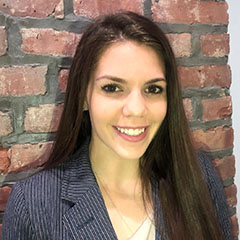
Major: Political Science, Sociology
Minor: Philosophy
Hometown: Rochester, NYWhy did you decide to major in political science?
I have always been interested in law and pursuing a career in the legal field. I thought that a political science major would best prepare me for law school and/or a job in the legal field. Additionally, I felt that studying political science would provide me with insight and knowledge that would help me approach valuable questions in society about morality and law while helping me to cultivate a deeper understanding of the American bodies. Studying political science has allowed me to develop into an educated, informed, and engaged American citizen that possess essential critical thinking skills to work towards meaningful change.What is your favorite aspect of being a student at Fordham?
My favorite aspect of being a Fordham student would be the Jesuit tradition that is so deeply rooted in the Fordham community. The Fordham community provides students with so many opportunities to get involved in the local community, participate in service, and truly go out to make a difference and act as men and women for others. I like that the Jesuit ideals and principles are tied into the curriculum at Fordham. Service then becomes an opportunity for students to truly live out those values they find most important. I think that the Jesuit tradition at Fordham has equipped me to become more empathetic and considerate of how I can use my education, knowledge, and talents to contribute to help others around me.What have you learned as a political science major that made a difference for you?
I believe each one of my political science courses at Fordham University has provided me with experiences and knowledge that have made a meaningful difference to me. However, I would say that one course I am taking this semester, Global Justice Seminar, with Professor Tampio, has been very meaningful for me. We are only about halfway through the semester and the exposure I have gained into different theories and conceptions of global justice and contemporary issues has been invaluable. The course has really challenged me to formulate my own conception of global justice and connect it to my service work, everyday actions, and involvement in different communities.What are your career aspirations and plans after graduation?
Following graduation, I plan to attend law school in the Fall of 2019. I am interested in a variety of specializations, including international human rights law and patent law. I am planning to begin my career as an attorney in big law and hope to eventually transition into a more narrowed focus on international human rights by working with NGOs or becoming a lobbyist for international human rights issues.What advice do you have for incoming students considering the political science major?
I would advise students who are considering the political science major to take a few introductory classes in political science as soon as they can their freshman year (second semester) to see if they find the classes interesting. I was fortunate enough to take three intro classes (introduction to politics, introduction to comparative politics, and introduction to international politics as a second semester-freshman. I found the classes stimulating and interesting. Ultimately, those classes exposed me to a variety of different areas in political science and confirmed that the major would be a good fit for me. -
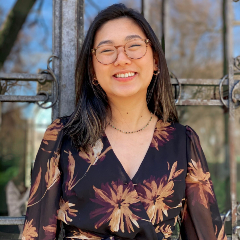
Major: Political Science, English
Minor: Classical Civilizations
Hometown: Wayne, NJWhy did you decide to major in political science?
I was originally drawn to the political science major due to my passion for American history and especially at a Jesuit institution, the major’s interdisciplinary dimensions for utilizing governmental structures as a means for social service. Prior to attending Fordham, I had worked at my local Assemblywoman’s office and the American Red Cross, so the political science major at Fordham felt like the perfect intersection between my two main interests.As my Fordham academic career has progressed, this has evolved into a commitment to understanding more about the various systems and practices that shape our everyday lives as a means toward shaping a more equitable society.
What is your favorite aspect of being a student at Fordham?
My favorite aspect of being a Fordham student is how deeply interconnected the school community is: this opens a plethora of opportunities - whether it be through clubs, research, or mentorship - for getting involved! The close-knit campus culture really lets you take the reins in pursuing whatever you decide your academic and personal interests are with the support of your peers, faculty, and staff. For example, after doing diversity, equity & inclusion work in the University through the United Student Government (USG) for the past few years of my college career, I’m actively pursuing research with the Office of the Provost this summer related to anti- racist course design and best practices in educating for justice.In addition to the generously diverse course load, I’ve had the amazing opportunity to become involved within University functions through the Diversity, Equity & Inclusion Council, Urban Plunge program under the Center for Community Engaged Learning, and various other student organizations on and off-campus.
What have you learned as a political science major that made a difference for you?
As a political science major at Fordham, one of the most valuable lessons that countless professors have instilled upon me is the value of critically interrogating dominant institutions and specifically, the way in which they further or diminish equity within communities. Whether it be political theories that communities are founded upon or institutional practices, many classes at Fordham are aimed toward providing an education for justice: this entails providing students with the critical thinking, historical context, and resources needed to pursue lasting change in the broader community.What are your career aspirations and plans after graduation?
After working with the NYS Division of Human Rights this upcoming summer, I’ll be preparing to take my LSAT in the fall and apply for law school! For my post-grad aspirations, I hope to use my experiences at Fordham undergrad to further explore my interests in constitutional and human rights law. Ultimately, I am interested in helping shape and interpret laws through an equitable and inclusive lens to better governmental and community practices.What advice do you have for incoming students considering the political science major?
Don’t be afraid to get out of your comfort bubble in talking to your peers and faculty members! Everyone at Fordham, especially the professors, are extremely dedicated to forming close relationships with students and are such valuable resources in academic or career related advising. You never know what you may have in common with the people around you, so don’t be afraid to make some connections and find out! -
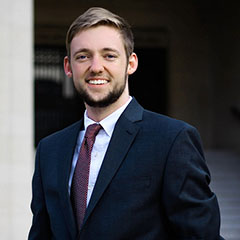
Major: Political Science
Minor: Humanitarian Studies
Hometown: Chapel Hill, North CarolinaWhy did you decide to major in political science?
I decided to major in political science because I developed a passion for American history and politics in high school and wanted to continue pursing my passion in college. I took a few of the introductory political science courses during my freshman and sophomore years of college and absolutely loved them, so I decided to choose the major.What is your favorite aspect of being a student at Fordham?
My favorite aspect of being a student at Fordham has been the small classroom sizes and the opportunities for experiential learning through internships. It has been such an awesome experience to take most of my classes, especially within my major, in small classroom settings. This type of learning environment has allowed me to get to know my classmates and professors in a deeper and more personal way than in a traditional lecture-style classroom. I have also loved the internship opportunities that I have had as a student at Fordham. The internships that I have held have complemented my Fordham education since they have given me the opportunity to apply what I had learned in the classroom while also gaining tangible work experience.What have you learned as a political science major that made a difference for you?
My favorite part of majoring in political science was the opportunity to take niche and unique classes, such as Professor Bruce Berg’s “New York City Politics” course, that few other schools offer. This class in particular taught me about the structure and dynamics of the political systems that exist within New York City and State, as well as many of the social issues that the city currently faces. I absolutely loved my time in these classes and they inspired me to pursue more work and research within the New York City political system.What are your career aspirations and plans after graduation?
After graduation, I plan on working within the New York City political system and hope to find a job that will provide me with an opportunity to work on affordable housing policy. In the future, I want to either attend law school or obtain a master’s degree in public policy and continue working in the field of politics and public policy, especially in the area of affordable housing and homeownership. I am also interested in running for public office later on in my career.What advice do you have for incoming students considering the political science major?
I would first recommend to get to know the political science professors on a personal basis. They are such great resources for research, career advice in the realm of politics and policy, and are just very kind and generous people all around! I would also recommend to take advantage of the internship opportunities that are offered throughout the year. There are a ton of great internships that exist in New York City that provide students with tangible and hands-on experiences within the state and local political systems. Also, if you want to continue working within the political realm of New York City after college, it is vital to make connections with people during your college career because the connections that you make often open up more doors and career opportunities later on. -
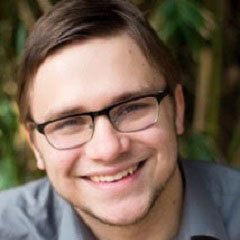
Major: Political Science, Film and Television
Hometown: Houston, TXWhy did you decide to major in political science?
When deciding what I wanted to major in during college, I wanted to select a subject matter that I could spend hours and hours and hours immersing myself in without getting sick of it. Political Science was basically the only option at that point. I had become obsessed with American politics after watching The Daily Show and The Colbert Report since middle school, and I wanted to be knowledgeable enough about it to write good, informed jokes. Like this one: Andrew Cuomo has the left-wing principles and Spanish ability of Tim Kaine mixed with the charm and charisma of the manager at your local Buca di Beppo. (I think that’s pretty good.)What is your favorite aspect of being a student at Fordham?
Coming to Fordham has given me the opportunity to pursue a number of exciting opportunities in New York City while completing my degree. I have been an intern for Senator Chuck Schumer, the Hillary Clinton campaign, Full Frontal with Samantha Bee, Late Night with Seth Meyers, and The Late Show with Stephen Colbert. Along the way, fellow Fordham students have helped me to get these opportunities, and my professors have been highly supportive and forthcoming with advice. I’ve also been able to carve out a niche within Fordham’s curriculum to take courses and complete assignments which apply in different ways to my pursuit of writing political comedy.In addition to my political science courses, I am completing a second major in Film & Television, and I’m part of the Honors Program, which let me put up an hour-long original comedy show for my thesis project.
What have you learned as a political science major that made a difference for you?
I learned a lot about New York City politics in particular that has given me another layer of perspective. From Christina Greer’s integration of hands-on local experiences during our Urban Politics course to Christopher Toulouse’s deep dive into recent mayors in our New York City Politics course, I’ve had the chance to get a specialized, hyper-specific education in an area I never anticipated! This additional understanding really came in handy while assisting with casework for Senator Schumer’s office, and working at the Brooklyn headquarters of the Hillary Clinton campaign. I also made a video called Why George Pataki Will Never Be President once, and who knows if I could have nailed that prediction otherwise?What are your career aspirations and plans after graduation?
I am pursuing a career as a comedy writer, ideally for late night television. I’m going to keep doing improv, sketch, and stand-up in the city, while producing political comedy videos for my YouTube channel, ChandlerDeanVideos, which has accumulated over 3,500 subscribers and 700,000 views. I’m also excited to finally engage in my true passion full-time: emailing former supervisors to remind them that I exist and am seeking employment.What advice do you have for incoming students considering the political science major?
Let your professors know what you’re passionate about or interested in pursuing after graduation! I never expected that any of my political science professors would have connections with or knowledge of the comedy world – but Christina Greer does. And all of my professors have been flexible about allowing me to create unconventional projects or write papers with an angle that fits my interests. You never know how your mentors might be able to help you pursue your dreams – and they won’t either unless you speak up about your life outside the classroom. -
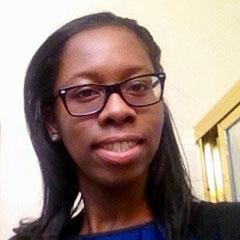
Major: Political Science
Minor: Economics
Hometown: Bronxville, NYWhy did you decide to major in political science?
I decided to major in political science for a few reasons. First, I am interested in law and political science is relevant for that endeavor. Second, politics is part of everyday life. It only seemed natural to study a discipline that has become so intertwined with our culture. Third, with a solid foundation of politics, I can do my part to affect change in our world. Fourth, and my most favorite reason, political science is interesting and unpredictable.What is your favorite aspect of being a student at Fordham?
Fordham is unique with respect to its class sizes. Fordham typically has small class sizes, so professors know their students well. I especially love that some of Fordham’s classes are conference-style, in which both the professor and students engage in discussion. This, I believe, is one of the most fruitful ways to hear and learn about different opinions. I also love serving as a Faculty Assistant Student Advisor (FASA). It affords me the opportunity to advise others who were once my position.What have you learned as a political science major that made a difference for you?
Taking certain political science courses has given me insights that I would not have gained without them. Civil Rights and Liberties taught me to know my rights as a citizen, and when it would be appropriate to express these rights. Political Economy of Poverty broadened my understanding of the different factors that cause poverty. This course also taught me that poverty is a nuanced term with many different levels to it. As a result, I now view poverty from a more informed perspective. American Political Thought has shown me that ideas from early political philosophers still influence our policymakers today.What are your career aspirations and plans after graduation?
After graduation, I am going to complete a one-year Master’s program in Ethics at Fordham. Following the Master’s program, I plan to attend law school. My ultimate career goal is to become a law professor, specializing in immigration law and labor law.What advice do you have for incoming students considering the political science major?
Incoming students should know that you have to study hard as a political science major. Get ready to read and write; but overall, have fun studying politics. It is at the heart of many issues in our world today. -
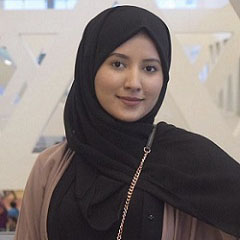
Major: Political Science; International Studies
Minor: Theological Religious Studies
Hometown: Astoria, NYWhy did you decide to major in political science?
When deciding to major in a particular subject, I wanted to ensure that I was choosing a subject that I was purely passionate about. This major had to be something I could never get sick of. Therefore, I had to decide between international studies and political science. Frankly speaking, I was more fascinated with politics. Learning about how power is distributed, and understanding who gets what, when and how was important to me. After taking my Introduction to Politics class, I learned that political science is not an easy discipline. It requires intensive reading, writing, research and critical thinking skills. As daunting as that all sounds, it is an incredibly rewarding major. In my opinion, Fordham’s political science department has some of the best professors that I have ever taken. They are incredibly knowledgeable in their fields, extremely supportive and prepare students to apply their logical reasoning skills. All of my professors care about providing their students with the necessary tools so that they can think about the implications of policies on their own and create policy prescriptions to solve political and social issues.What is your favorite aspect of being a student at Fordham?
I believe that nothing can compare to the quality of education that I have received by the virtue of being a Fordham student. Fordham has very small class sizes that allow professors to get to know their students and for students to get to know other students. I especially appreciate that not all of my classes are lecture style. We are encouraged to participate in class discussions and ask questions. By engaging in discussions with my professors, I feel more comfortable with going to office hours to receive advice on research papers and exams. Furthermore, professors are more concerned if I am learning and understanding the material over grades. They are open to making changes to ensure that students are able to maximize their learning abilities. As a result, I am never bored in class.What have you learned as a political science major that made a difference for you?
After taking over a dozen of political science classes, my professors have taught me the essential skills of critical thinking and analysis. From Anjali Dayal’s metaphors of sheep and gatekeepers to explain the complexity of collective action in the context of international organizations to Zein Murib’s emphasis on learning how to ask So What? to everything, I have gained the importance of not only learning about theories, but also putting them in practice. Political science is not only the study of political theories, it also assesses the implications of putting them into practice. As a result, I am not ashamed to say that I enjoy reading academic journals as a pass time. My brain is automatically wired to see the politics in everything that I read. I often find myself thinking about the assumptions an author is making and develop critiques along the way. I cannot express the importance of possessing these skills for my future career endeavors.What are your career aspirations and plans after graduation?
After graduation, I plan on going to law school. By majoring in political science, I was able to discover my passion for international affairs and American politics. In law school, I would like to focus on international law and immigration. My ultimate goal is to work for the United Nations and create policies that strengthen international cooperation in international organizations.What advice do you have for incoming students considering the political science major?
Firstly, I would advise incoming students to take advantage of the diverse options in political science courses that Fordham offers. After signing up for Intro to International Politics, I learned what I loved. If I didn’t sign up for Anjali Dayal’s class, I wouldn’t want to work in the United Nations one day.Second, if you have an opportunity to study abroad, take advantage of it! I studied abroad in London during the fall semester of my junior year. I took courses in political science there and gained an international perspective on politics. I was able to learn about how the rest of the world perceives the United States and its role in politics.
Third, you should know that doing well in college is not difficult. In order to do well, you have to put in time and effort into doing your work. While reading dozens of pages every night does not sound like fun, it pays off when you know what the professor is talking about and helps ease stress when it is time for midterms and finals. You are doing yourself a favor by investing in your own education!
-
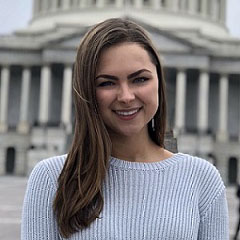
Major: Political Science
Hometown: Cleveland, OHWhy did you decide to major in political science?
I was drawn to political science when I began to realize the important role politics plays in shaping the daily lives and experiences of all people. Every individual is impacted by the decisions that our elected officials make on local, state, and federal levels; issues regarding healthcare, immigration, and tax reform are just a few current examples. This particular moment in American politics has shown me how important it is to advocate for fair and equitable policies as well as hold politicians accountable to their constituents.What is your favorite aspect of being a student at Fordham?
My favorite aspect of being a Fordham student is having the opportunity to learn and grow outside of the classroom in New York City. Thanks to Fordham’s location, I have gained incredible experience by participating in marches and campaign rallies throughout the city, interning for a member of the U.S. Congress, and, most importantly, establishing a network of like-minded individuals on campus. Through the Center for Community Engaged Learning, I have been involved with the annual Urban Plunge program, which introduces incoming freshmen to Fordham’s Jesuit mission of social justice and community service. During Urban Plunge, we engage in discussion about political and socio-economic issues while also participating in an array of service projects to serve various communities of New York City. The Center for Community Engaged Learning and my experiences in the city have challenged and shaped me as a student and a member of my community.What have you learned as a political science major that made a difference for you?
Out of the countless lessons I have learned in political science, one particularly formative concept is the idea that politics is much broader than simply what the President and Congress are doing. I have learned that political goals are often achieved outside the realm of electoral politics by the efforts of social activists, interest groups, and non-governmental organizations. Without the work of these groups, American politics would look very different; it is these organizations who continue to push against the status quo to fight for society’s marginalized populations.What are your career aspirations and plans after graduation?
The overarching goal of my career is to help shape a system of government in the United States that creates a more just and equitable society for all people. I am particularly interested in increasing political representation for women, people of color, and the LGBT+ community in all levels of government. After graduation, I hope to work on political campaigns and eventually run for office myself.What advice do you have for incoming students considering the political science major?
My advice to a prospective political science student would be to take full advantage of the many resources and experiences that Fordham and New York City have to offer. In addition to having access to a wide range of internships and volunteer work, students have countless opportunities to attend political-oriented talks and debates offered by the political science department and student-led clubs. Most of all, political science students at Fordham are fortunate to have such knowledgeable professors and advisors who continue to prove their dedication to their students by mentoring, challenging, and inspiring us to reach our fullest potential during our time at Fordham and beyond. -
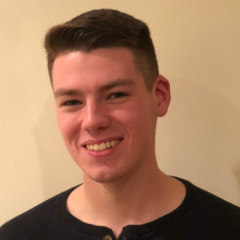
Major: Business Administration
Minors: Political Science
Hometown: Carmel, NYWhy did you decide to minor in political science?
I decided to minor in Political Science because as Americans, we should all have a working understanding of our government, so that we can make informed decisions on the candidates and policies that we want to support. As Thomas Jefferson said, “An enlightened citizenry is indispensable for the proper functioning of a republic.”What is your favorite aspect of being a student at Fordham?
My favorite part about being a student at Fordham is the people whom I get to live and work with every day. I have found that Fordham has a very high degree of cognitive diversity, and it has been my experience that being able to debate with be who have differing views from my own, has developed my communication and critical thinking skills.What have you learned as a political science minor that made a difference for you?
Before starting my courses on mainly American Politics, I had an over-simplified view of our system of government. Dr. Hume’s Constitutional Law class has been one course in particular that has shown me the great extent of the powers granted to the branches of government by the Constitution. In Professor Heersink’s course on Campaigns and Elections, I have learned about the ins and outs of a campaign and the factors that campaigns take into account to secure an election.What are your career aspirations and plans after graduation?
In May of this coming year I will graduate from Fordham and also Commission as a 2nd Lieutenant in the U.S. Army. Being that I will take an oath upon my commissioning where I will swear to “support and defend the Constitution of the United States,” I am grateful that I have had the opportunity to learn and really understand the inner workings of our country’s most important document.What advice do you have for incoming students considering the political science minor?
I would encourage any Fordham student to take at least a couple of courses in Political Science to gain a greater appreciation for our country and how our government works. -
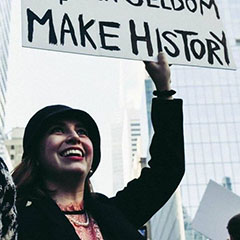
Major: Political Science, Middle East Studies
Minor: Arabic
Hometown: Albany, NYWhy did you decide to major in political science?
I’ve been listening to punk rock music since I was about ten years old and some of my favorite punk bands I listen to such as Green Day, the Ramones, The Clash, etc. are critical of politicians, government policies, institutional injustices in so many of their songs. I see punk music as such a constructive outlet for political frustration and democratic participation and when I discovered “American Idiot”, a record critical of the Bush administration and the War on Terror, I knew I had to learn more about the presidency under which I was living. I got involved in student government in the fifth grade, stayed active in student government in high school, and knew I wanted to study political science before coming to Fordham.What is your favorite aspect of being a student at Fordham?
My involvement in the Global Outreach (GO!) program has been the most impactful experience I’ve had at Fordham. Global Outreach is a program that deploys students to domestic and international arenas of the world to study the politics and culture of the region through engagement and immersion. I’ve had the privilege of participating on GO! India, GO! Nicaragua and I’m currently leading the project to San Jose, California. Global Outreach equips students with an education outside of the classroom that pushes students out of their comfort zones while fostering communal and spiritual growth. I am motivated to connect with people of all walks of life and bridge cultural and linguistic gaps toward understanding, and GO! has given me a platform to begin this work.What have you learned as a political science major that made a difference for you?
I learned that it’s important to approach issues from all perspectives. I need to see all sides of something before I can establish a firm stance. Being able to hold respectful debates in the classroom is an essential pillar of the Fordham education because if we can learn to disagree better in the classroom, we can enable ourselves to bring that dialogue outside of the classroom, as well.What are your career aspirations and plans after graduation?
I want to be a part of resolving conflicts, peacemaking, and diplomacy. I plan on taking part in a fellowship program or the Peace Corps before pursuing a Master’s degree in Security Studies. I want to work abroad at some point, hopefully in the Middle East or North Africa. I ultimately hope to pursue a career in the Department of State.What advice do you have for incoming students considering the political science major?
To the ladies considering majoring in political science: you’ll be outnumbered by the guys in quite a few of your classes. Regardless; don’t hesitate to take up space, ask questions, be unapologetic, and stand up for what you believe in. Find something(s) you’re passionate about and be active. Well-behaved women seldom make history. -
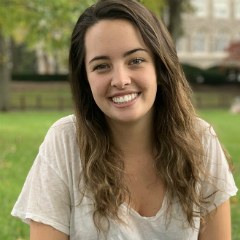
Major: Economics
Minors: Political Science
Hometown: Rehoboth, MAWhy did you decide to minor in political science?
I decided to minor in political science after I worked on the Hillary Clinton campaign. I originally wanted to double major in Economics and Spanish, but after taking a semester off to be a field organizer for Hillary in 2016, I thought a political science minor made more sense. Additionally, I think a political science minor complements my major in Economics.What is your favorite aspect of being a student at Fordham?
I love our proximity to the city. I’ve had so many opportunities that I never would have had if we weren't in New York City. I've been able to work on campaigns and in consulting while a full-time student which has really enhanced my education. As much as I love the city, I’m happy I still have a traditional college experience on Fordham's campus. It’s the best of both worlds.What have you learned as a political science minor that made a difference for you?
Learning about the studies behind campaigns and elections has been really helpful. When you're on a campaign, it can be easy to lose sight of why you're doing what you're doing and what actually makes a difference. For example, you might think that you need to put money into yard signs but when you study the effectiveness of yard signs, you realize yard signs are mostly practical for local races where candidates need name recognition. One of the most useful classes I took was Campaigns and Elections with Professor Heersink. Studying the mechanisms behind campaigns has impacted the way I view campaigns and gave me context for strategy.What are your career aspirations and plans after graduation?
Right after graduation, I hope to work on a 2020 race. I graduate in May 2019 so I expect some 2020 races to be hiring at that time. I don't have a candidate in mind just yet, but I know I want to work on a campaign. This election is too important to sit on the sidelines. After 2020, my plans are really up in the air. I love politics and would love to stay involved, but I don't know in
what capacity.What advice do you have for incoming students considering the political science minor?
Pair your degree with real world experience. Everything I have learned in school makes so much more sense when put in the context of the world outside of Fordham. I think you get more out of your education and more out of your job when you do so. -
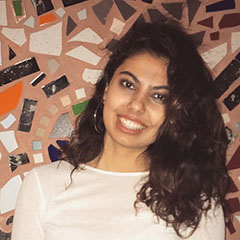
Major: Political Science, Middle East Studies
Minor: Arabic
Hometown: Somers, NYWhy did you decide to major in political science?
I chose to major in political science because I plan to go on to law school following my graduation from Fordham University. Being a political science student at Fordham taught me how to understand, analyze, and critique politics and events. All the tools that I learned as a political science student are transferable to my eventual career as a lawyer. Moreover, the diversity of interests that political science classes covers, whether that is American Studies, Islam, Women Studies, or Law, allows every political science student to explore new, unfamiliar and ultimately rewarding topics.What is your favorite aspect of being a student at Fordham?
My favorite aspect of being a student at Fordham is the professors. The professors I have had are so passionate and dynamic that I have found unique inspiration from each of them. For example, seeing the raw love my Arabic professor had for his language inspired me to take on the Arabic minor which eventually led me to taking on the Middle East Studies double major. My professors at Fordham have helped me discover my passion and purpose.What have you learned as a political science major that made a difference for you?
As a political science major, I learned how to seek truth in life beyond what is considered normal and what we see in the media. I saw the necessity of being better informed of my surroundings and the realities of the world so that I can better use my voice to uplift others who cannot uplift themselves.What are your career aspirations and plans after graduation?
I will be working as a paralegal for 1-2 years following graduation to gain more experience in the field of law. I hope to attend law school and eventually practice immigration law.What advice do you have for incoming students considering the political science major?
The beautiful thing about being a political science major is that the courses you can elect to take are so diverse. Take advantage of the breadth of classes that can fulfill the major! Take a Middle East course, take an American Studies course, and take Youth and Politics course! You can leave Fordham with a broad range of ideas and knowledge about the world beyond just what you are comfortable and what you already know.I encourage every political science major to conduct research at least once in their undergraduate career. Conducting research at Fordham has been one of the most rewarding experiences. Through conducting research I have learned how to publicly advocate and defend my research. I had the opportunity to contribute knowledge that has the potential to positively impact the world. After my presentation at the National Conference on Undergraduate Research in Oklahoma City, one of the audience members thanked me for my work. She said, “This is very important research that you conducted and I want to thank you for that.” That one comment from a stranger stuck with me and helped me realize that my hard work and research is making valuable contributions to the world of academia and that undergraduate research can make an indelible difference.
-
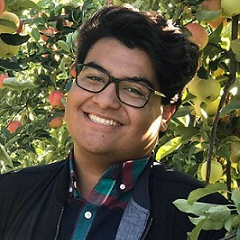
Major: Political Science
Minors: Mathematics, American Studies
Hometown: Weehawken, NJWhy did you decide to major in political science?
I came in to Fordham dead-set on majoring in Mathematics and Computer Science, but by the end of my freshmen year, I felt confused about what I wanted to do with my life and how my studies would reflect my evolving interests and passions. I had taken Introduction to Politics and Political Economy of Poverty to fulfill core requirements, and after some critical reflection, I realized that the political arena was where I wanted to be. The world is plagued with injustices, from attempts to disenfranchise minority voters to keeping access to basic education a non-possibility for many, and I came to understand after taking these courses that we as a society need to take a more active stance at addressing problems. Majoring in Political Science allows me the opportunity to be more hands-on in combating pressing problems and become a louder voice for forward-thinking and socially inclusive solutions.What is your favorite aspect of being a student at Fordham?
What I love so much about being a student at Fordham is the rich diversity I get to come across every day. We all have our own unique perspectives and lived experiences that make us who we are, and these differences are wholly celebrated on campus. I’ve been able to have beautifully enriching discussion with people I didn’t necessarily agree with about things I was
unfamiliar with, but that openness to dialogue I consider to be immensely important to the lifeblood of democracy and the overall development of the nation. Fordham students truly care about expanding their horizons and qualifying their personal stances on things, which allows campus life to thrive.What have you learned as a political science major that made a difference for you?
I have learned so much about the issue of underdevelopment and the lasting effects had on the developing world. Many of the assignments I am most proud of from my political science courses have addressed how lacking infrastructure aids in perpetuating regional poverty and keeping some countries behind while others thrive. Things like building roads for landlocked nations to have access to water seems so straightforward, but in reality requires much coordination with neighboring communities that the task becomes almost entirely impossible. Before Fordham, I was unfamiliar with many political and social issues, but I’ve been able with the major to delve into these problems and see the world in a more focused lens.What are your career aspirations and plans after graduation?
After graduating, I plan on pursuing a Master’s Degree with Fordham’s Elections and Campaign Management program. I want to do work in the voter statistics and political behavior arenas, and I hope to gain valuable experiences in the master’s program to prepare me for the future.What advice do you have for incoming students considering the political science major?
As someone who changed their major twice before deciding on political science, I would tell students to not get wrapped up in what other people are saying. Many people were in my ears influencing me that certain majors and career paths were less important than other things, but at the end of the day, you have to look inside yourself to determine what will make you happiest. For me, that wound up being politics, and for students considering the major, it is important to put first your desires and wants before those of others. That will ensure you truly have a prosperous future. -
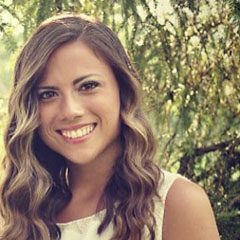
Major: Political Science; Philosophy
Hometown: Scranton, PAWhy did you decide to major in political science?
I decided to major in political science because I am extremely interested in the law. Fordham offers a wide range of courses in the political science department that allows me to pursue this interest, like Judicial Politics and Civil Rights and Liberties. Because of this, I knew that being a political science major at Fordham would be a personally enjoyable and intellectually stimulating experience. And most importantly, I always found studying the law and politics fun!What is your favorite aspect of being a student at Fordham?
My favorite aspect of being a student at Fordham is that my education was based on the core. As an incoming freshman, I was hesitant to pursue the core classes because I did not view them as useful for my future career goals. However, without the core, I would not have become a political science and philosophy double major. The core made me realize that I had a passion for both areas of study, and that the two complemented each other perfectly for my future in the legal world.Fordham also allowed me to pursue my interests outside the classroom through various clubs. Being a part of the United Student Government and the Mock Trial Team at Fordham, afforded me the opportunity to learn how to enact certain policies on campus and how to litigate in a real courtroom.
What have you learned as a political science major that made a difference for you?
As a political science major, I have learned to look at things from an analytical perspective. I tend to focus on theory more than anything else because of my philosophical background. But from my experience as a political science major, I have learned the importance of not only knowing the theory as to why something is the way that it is, but that it is also important to quantitatively prove why things are the way that they are when formulating my thoughts about a particular topic.What are your career aspirations and plans after graduation?
After graduation, I will be attending law school at Emory Law. With this education, I hope to become a litigator.What advice do you have for incoming students considering the political science major?
For incoming students who are considering the political science major, it is important to consider why you think you might enjoy the major. Often, students elect into a major because people tell them to, or because they believe it is the only sensible major to pursue when considering certain career goals. But it is important that you enjoy your major before anything else. Your major is the thing that you will be dedicating four years of your life to, so it is important that you enjoy it. -
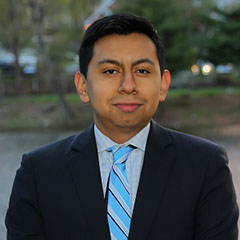
Major: Political Science
Hometown: Ossining, NYWhy did you decide to major in political science?
As a member of my community I felt a need to participate and contribute to change. This was the impetus that developed my interest in politics. As I became more aware, I began working with community-based organizations, politicians, and local leaders. In high school, I was intrigued by politics and my curiosity led me to study political science in college. I was interested in learning about economic, immigration and education policy and the discipline provided pragmatic answers and solutions.What is your favorite aspect of being a student at Fordham?
Being a student at Fordham is very dynamic. There is a diversity of thought both within the student body and the faculty. This environment was welcoming and through it, I was able to perform undergraduate research focusing on protest activity of DACA students with the help of my advisor, Dr.Nikolayenko. I was also surprised by the number of clubs and organizations to immerse in. There is always an opportunity to get involved.What have you learned as a political science major that made a difference for you?
I now have a firm grasp on how government and society both work together in the sense of function and purpose. This understanding is invaluable when working in the realm of politics or law. This has helped me become more insightful, analytical and articulate. I was able to immediately put these skills into use when I began interning at an Intellectual Property law firm in Manhattan.What are your career aspirations and plans after graduation?
I am planning to attend law school after graduation and focus on empowering local youth through community activism.What advice do you have for incoming students considering the political science major?
Be an advocate for yourself. Take initiative and explore the variety of faculty and resources Fordham has to offer. Also, find your passion and continue seeking areas to engage with other students even outside of your major. Enjoy your time in college. Four years pass quickly and setting goals are essential to succeed. -
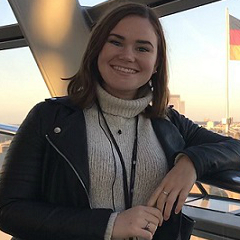
Majors: Political Science
Minors: German; Environmental Studies
Hometown: Rockville Centre, NYWhy did you decide to major in political science?
Prior to choosing a focus area of my studies, I had the general desire to utilize my abilities to positively influence others and society as a whole. I soon realized that this ambition intersected with my interest in the relationship between politics and the law, and the impact these areas have on the lives of citizens. I felt that dedicating my studies to political science would give me the tools necessary to comprehend the workings of policies and the institutions which govern society and its members. Thus far, I have enjoyed my studies as a political science student immensely and now fully realize how the major complements my desire to ultimately help others in the community.What is your favorite aspect of being a student at Fordham?
At Fordham, there is an active flow of idea sharing in and outside of the classroom. I frequently witness students eagerly applying lessons learned in class to experiences of every day life. As a student at Fordham, I learn a lot from my peers. I also had a great opportunity to study the political workings of Germany and Europe during the 2018 Fall semester in Berlin. There, I was able to share my ideas with and learn from students who had come from all over the country. I was also able to see how another culture and society functions; an opportunity I'm still discovering the advantages of. Studying abroad was a truly wonderful and educational experience: a highlight of my time at Fordham.What have you learned as a political science major that made a difference for you?
In many of my classes, we have discussed the widespread misconception that politics and the law are not fully available for normal citizens to comprehend. However, I have learned that we fully have the power to influence our governments and societies through active participation in our government. This idea has been clarified throughout history, and today we are seeing a resurgence of this in our country.What are your career aspirations and plans after graduation?
I plan to attend law school after graduation in the hopes of eventually aiding people through legal counsel. I am interested in practicing criminal law, international law, environmental law or civil rights law. But first, I need to take the LSAT!What advice do you have for incoming students considering the political science major?
I would suggest staying up-to-date on the news. Being aware of current events gives one an advantage in any political science course. -
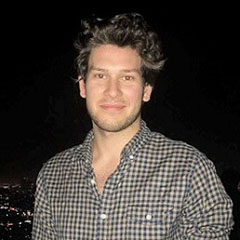
Major: Political Science; French Studies
Hometown: Seattle, WAWhy did you decide to major in political science?
I have always been interested in politics, both national and international. I wanted a major that would help me to explain how and why politics functions the way it does. With so much of the news covering complicated international crises between world powers, I wanted an education that prepared me to decrypt, analyze, and further investigate politics. The political science major taught me not only how to analyze the larger theoretical implications of political events, but also the tangible, real-world consequences.What is your favorite aspect of being a student at Fordham?
Fordham’s Lincoln Center campus hosts students from all around the world. These international students come from all sorts of cultural and economic backgrounds. Their contributions to class discussions are immeasurable. They provide different cultural or political perspectives that encourage other students to rethink their own positions. I highly value Fordham’s effort to curate an academically engaging environment by hosting students from all around the world.What have you learned as a political science major that made a difference for you?
I have learned so much about the systemic inequalities that exist throughout the American political apparatus. Before coming to Fordham, I had not been taught extensively in the various ways that our institutions are set up to disadvantage certain groups. I think many of my classes at Fordham strived to educate students on the inequalities that permeate the American system. Education on this subject better equips me to make a difference in our society.What are your career aspirations and plans after graduation?
Following my experience interning at the Council of Europe in Strasbourg, France, I decided that international relations and affairs was the right future career path for me. Working within an international organization that incorporated nearly all of Europe was an inspirational testament to the power of cooperative action today. Having this opportunity outside of the classroom affords me the experience I needed to make a decision about my future interests. This decision can be hard to make with just classroom experiences.Going forward, I would love to work for a cooperative international organization where I could help bring governments together for meaningful policy discussions. Before all that, I would like to pursue a masters in international relations to tailor my academic experience even further.
What advice do you have for incoming students considering the political science major?
Know what you want to specialize in and tailor your electives around that interest. Find an advisor with those similar interests and use them as a resource! -
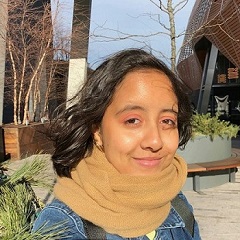
Major: Political Science
Hometown: Marlborough, MAWhy did you decide to major in political science?
The turmoil and the triumph of the last decade and a half shaped me. The way I see it, my life has been bracketed by major historical events: the year I entered high school, our country re-elected President Obama. The year I left high school, our country was on its way to electing President Trump. I grew up in politically fraught times, and the realm of politics never felt distant to me because I became aware of it so early in life. A part of the reason why I joined political science is that the issues I had heard on TV were real to me. I had friends and family who were held at the whim of someone else’s political will. I had friends come out to me, friends who had immigrated here when they were young and friends who had been followed and harassed for their race. If it weren’t for this investment in changing the status quo, so that those around me could breathe easy, then I doubt I would be majoring in political science. I would say that my decision to major in political science was a result of the political climate becoming very personal to me, in a way that compelled me to understand the institutions that govern us in order to change them.What is your favorite aspect of being a student at Fordham?
My favorite aspect of the major would have to be the people you meet; from the professors to the students, everyone here is passionate about what they are doing. There is this culture in political science and political science adjacent departments where students don’t just take stands for what they believe in, they actually believe they can make a change. I think that is a result of the professors here at Fordham, who encourage students to really take agency of the work that they are doing.What have you learned as a political science major that made a difference for you?
I am almost done with my major, and I would say that the thing I am most grateful for from the program is the way it has taught me to be more critical of the media we consume. Whether it be class readings or televised addresses from elected officials, my professors have encouraged me to bring the arguments in the works to their inevitable conclusion or question theories within them. My professors have encouraged me to not just understand politics, but question dominant political institutions in a meaningful way.What are your career aspirations and plans after graduation?
After graduating, I hope to pursue a fellowship for either further studies or public service. In terms of my career, I see myself working for the city of New York, whether it be for the government or the people directly. I would love to work in a community-based organization as a community liaison in order to connect the people to institutions of government for redress or reform.What advice do you have for incoming students considering the political science major?
I know it is tacky to say you should take a class with a specific professor, and normally I wouldn’t say pick a class based on the professor, but this can be an exception. Take your first political science class with either Professor Toulouse or Professor Murib. They have taught me more than I ever thought I would learn in a semester, and they truly encourage you to look at the world in a different way. With that in mind, I suppose my advice can be distilled to this: College helps reinvent your worldview, so be open to the growing pains and discomfort that can come with this transformation, and actively seek out the subjects that make you uneasy. Those classes tend to teach you how to be attentive to the world around you, and your position in it.